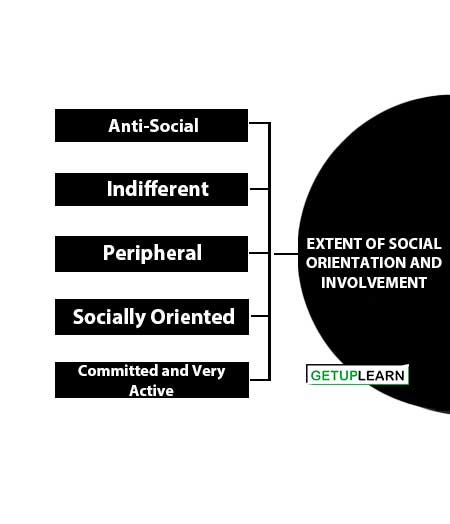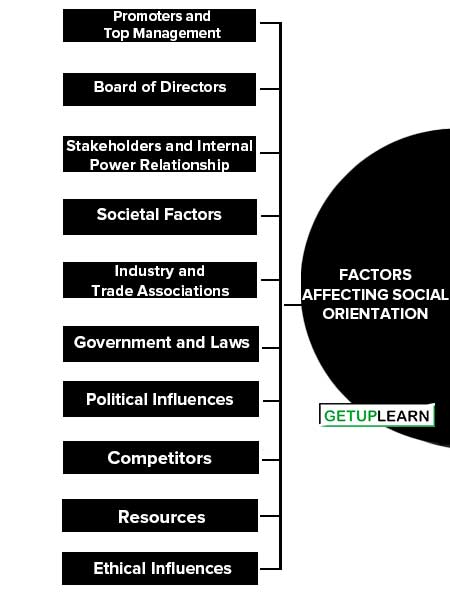Table of Contents
Social responsibility of business refers to what the business does, over and above the statutory requirement, for the benefit of society. The word responsibility connotes that the business has some moral obligations to society.
The term corporate citizenship is also commonly used to refer to the moral obligations of business to society. This implies that, just as individuals, corporates are also integral parts of society and that their behavior shall be guided by certain social norms. The operations of business enterprises affect a wide spectrum.
The resources they make use of are not limited to those of the proprietors and the impact of their operations is felt also by many people who are in no way connected with the enterprises. The shareholders, the suppliers of resources, the consumers, the local community, and society at large are affected by the way an enterprise functions.
There are some models, which endeavor to describe the evolution and extent of social orientation of companies. Notable ones include Carroll’s model, Halal’s model, and Ackerman’s model. Archie B. Carroll, who defines corporate social responsibility as the entire range of obligations a business has to society, has proposed a three-dimensional conceptual model of corporate performance.
According to Carroll, a firm has four categories of obligations of corporate performance: economic; legal; ethical; and discretionary. The firm is an economic entity, its primary responsibility is economic, i.e., efficient operations to satisfy economic needs of the society and generation of surplus for rewarding the investors and further development.
Legal responsibilities are also fundamental in nature because a company is bound to obey the law of the land. Ethical responsibilities are certain norms, which the society expects the business to observe though they are not mandated by law.
For example, a company shall not resort to bribing or unethical practices, unfair competitive practices, etc. Discretionary responsibilities refer to the voluntary contribution of the business to the social cause, like involvement in community development or other social programs.
On the basis of the extent of social orientation and involvement of companies, this author would classify them into the following categories;

Not only that these companies have no social orientation but also they are unfair and unscrupulous in the conduct of their business. Rather than respecting laws and norms in their letter and spirit, attempts may be made to take advantage of the loopholes/interpretational flexibility or to circumvent the rules and regulations by malpractices.
Promoters and top managerial personnel of several organizations have been found to engage in insider trading, price rigging, and the like. These businesses may even contribute a part of their ill-gotten money for social purposes to mask their real face or because of some compulsion to which they yield for fear of some reaction or for getting some favors or goodwill.
Indifferent
These are companies, which have no social orientation beyond discharging the legal as well as the economic responsibilities. The attitude is that going by the rules and regulations is good enough; there is the government and other organizations to work for the social cause and it is not the business of the business.
Peripheral
These companies are slightly a shade better than the indifferent category. They have a little bit of social orientation, often for the namesake.
Companies in this category have a high level of social orientation but their real involvement is constrained by limitations of resources.
Committed and Very Active
These companies are characterized by a high level of social orientation and real involvement in societal welfare programs. What distinguishes these companies from those in the preceding category is their ability to commit a significant amount of resources to make the social orientation meaningful.
Important factors, which influence the social orientation of companies, include the following:
- Promoters and Top Management
- Board of Directors
- Stakeholders and Internal Power Relationship
- Societal Factors
- Industry and Trade Associations
- Government and Laws
- Political Influences
- Competitors
- Resources
- Ethical Influences

Promoters and Top Management
The values and vision of promoters and top management is one of the very important factors, which influence corporate social responsibility.
Board of Directors
As it is the Board of Directors, which decides the major policies and resource allocation of the company, the attitude of the members of the Board is an important influencer of the social orientation.
Stakeholders and Internal Power Relationship
The attitude of various stakeholders like shareholders, creditors, employees, etc., and the internal power relationship also affect the social orientation of a company.
As suggested by Halal’s model described in the previous section of this chapter, a firm can only attempt to unite the diverse interests of various social groups to form a workable coalition engaged in creating value for distribution among members of the coalition. Beyond a certain level of economic activity, the social issues at stake may become conflicting.
Societal Factors
The social orientation of a company is also influenced by certain characteristics of society and the general attitude and expectation of society regarding the social responsibility of business.
For example, a resourceful firm located in a poor community may be expected to contribute to the development of education and health facilities, etc. of the locality whereas such involvement may not be required of a firm in a well-developed community.
The orientations or approaches may vary in accordance with the environment. The behavior or social orientation expected of business may vary between different societies.
Industry and Trade Associations
Industry and trade associations also influence the behavior of the firms by establishing professional and ethical codes and norms, education, and collective decisions.
Government and Laws
Laws are society’s codification of right and wrong. Businesses shall play the rules of the game. Anti-trust legislation, legislations to curb corruption, unfair practices, etc. vary between nations. What is right or not anti-law in one country may not be so in some other country.
Further, what is legally controlled in some countries has no legal control in some other countries. Besides legislation, there are other methods of government influence like guidelines, persuasion, incentives (like tax exemptions), and pressurizing.
The social orientation would also depend on the government’s view of social responsibility and the power and earnestness of government/agencies (like SEBI, for example) in dealing with defaulting companies.
Political Influences
Political influences include pressure exerted by special interest groups in society and the media to control business practices. These include a variety of non-government organizations (NGOs) like consumer interest groups, environmentalists, etc.
They use a variety of methods like lobbying to persuade government and public agencies to adopt regulatory measures, conducting public awareness campaigns, and even direct confrontation with the business in some cases.
Competitors
The competitive forces also influence the social orientation of the company. Two types of competitive behavior are often noted. When one or some companies become socially involved, others may be encouraged or provoked to do something.
Sometimes, there may be competition between companies to outperform others. The other way by which society benefits from competitive behavior is the actions of suing competitors for unfair practices or publicly exposing the misbehavior of competitors.
Resources
The financial position and other resources of the company also affect the social involvement of companies. It may be noted that the TISCO has been constrained to the cap, even though at a fairly high level, its social responsibility expenditure.
Ethical Influences
Another factor influencing social orientation is ethical decision-making and self-regulation of business conduct. Some companies have well-laid codes and norms of ethical behavior. See the previous chapter for more information. Gene Laczniak summarizes five ethical standards that are vague as follows:
-
The Golden Rule: Act in the way you would expect others to act towards you.
-
The Utilitarian Principle: Act in a way that results in the greatest good for the greatest number.
-
Kant’s Categorical Imperative: Act in such a way that the action you take could be a universal law or rule of behavior under the circumstances.
-
The Professional Ethic: Take actions that a disinterested panel of professional colleagues would view as proper.
- The TV Test: Ask, “Would I feel comfortable explaining to a national TV audience why took this action?”











